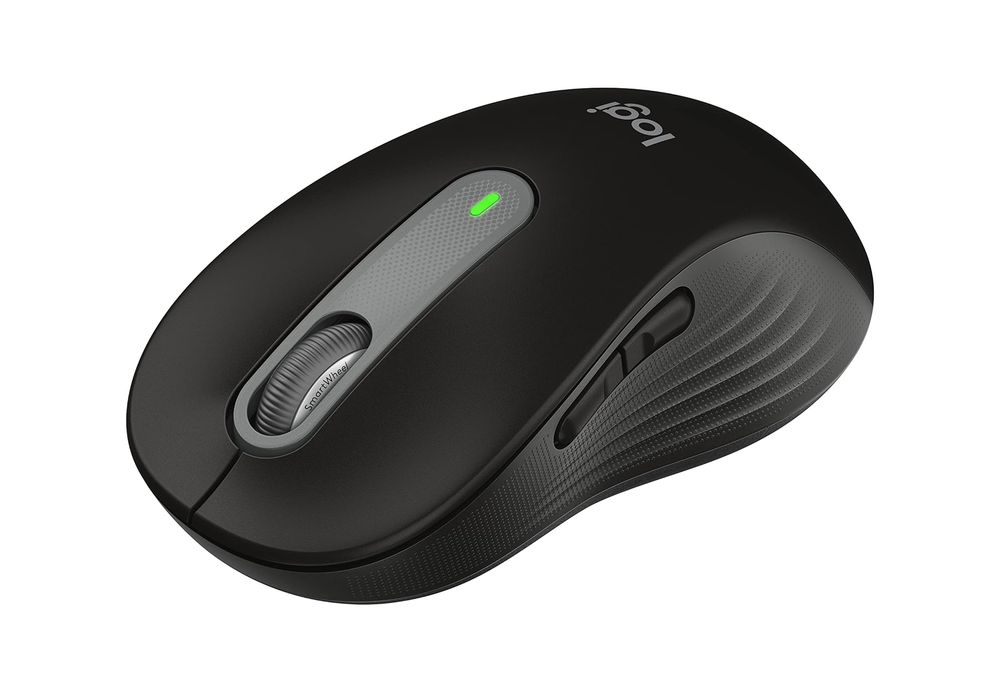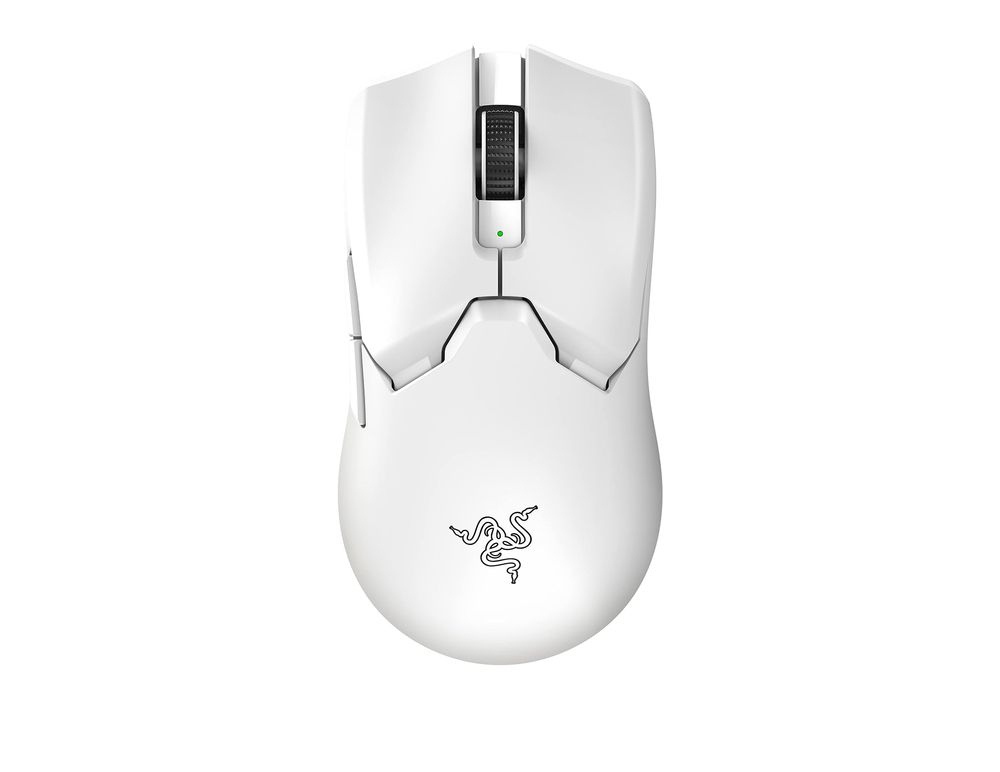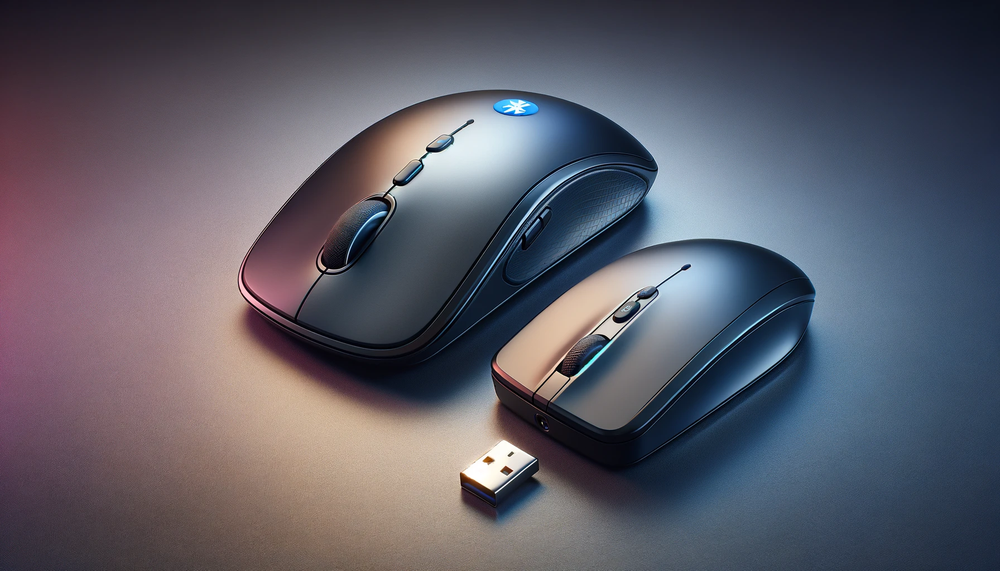In the dynamic world of gaming, the tools you choose can make or break your experience. Among these, the humble mouse plays a pivotal role. But here’s the catch – should you go for a Bluetooth mouse or a wireless one? This question isn’t just about preference; it’s about understanding the nuances that can affect your gaming performance.
TL;DR: Key Takeaways
- Global Market Growth: Wireless mouse market is booming, with a projected CAGR of 3.7% from 2020 to 2027.
- Connectivity Differences: Bluetooth mice connect directly to your device, while wireless mice use a USB RF transmitter.
- Portability and Convenience: Bluetooth mice are more travel-friendly, not requiring a dongle.
- Performance Factors: Consider connection speed, compatibility, and convenience.
- Personal Insights: Insights from gaming experts and users.
The Battle Begins: Understanding the Contenders
The Rise of the Wireless Mouse
Statistic Insight: The wireless mouse market, valued at USD 1.77 billion in 2019, is not just growing; it’s evolving. Gamers are a significant driving force behind this growth. This surge is not only due to the increasing popularity of gaming but also because of the technological advancements in wireless mouse design. Modern wireless mice offer features like customizable buttons, adjustable DPI settings, and ergonomic designs tailored to enhance the gaming experience. This evolution reflects a broader trend in gaming accessories, where flexibility and customization are becoming key selling points.
Connectivity: The Core Difference
Fact Check: The primary distinction lies in connectivity. A Bluetooth mouse syncs directly with your computer’s Bluetooth receiver, while a wireless mouse depends on a USB-connected RF transmitter. This difference might seem minor, but it has significant implications for users. Bluetooth mice offer a universal connection option, compatible with a wide range of devices beyond just computers, such as tablets and even some smartphones. On the other hand, wireless mice with RF transmitters often provide a more stable and faster connection, which is crucial for gamers who rely on quick reflexes and precise movements.
Portability and Ease of Use
Expert Opinion: “Bluetooth mice are generally considered more portable due to not requiring any dongle or adapter for connection, making them ideal for travel or minimalistic setups.” – Chris Stobing, How-To Geek. This portability is a significant advantage for gamers and professionals who are always on the move. Without the need for a separate dongle, Bluetooth mice reduce the risk of losing small but essential components. Moreover, for users who switch between multiple devices, the ease of connecting a Bluetooth mouse without the hassle of plugging and unplugging a receiver is a game-changer.
However, it’s important to note that this portability comes with a trade-off in terms of initial setup and potential compatibility issues. While most modern devices come equipped with Bluetooth capability, pairing a Bluetooth mouse can sometimes be more complex than simply plugging in a USB receiver. Additionally, certain devices may have specific Bluetooth versions, which could limit connectivity or affect performance.
Suggest products
Logitech Signature M650: A Silent Performer in Wireless Mice

The Logitech Signature M650 Wireless Mouse stands out in the crowded field of computer peripherals, especially for those seeking a blend of comfort and quiet operation. Its SilentTouch technology ensures a near-silent clicking experience, making it ideal for shared workspaces or late-night gaming sessions where noise is a concern.
| Pros | Cons |
| ✅ Near-silent clicking experience ✅ Ergonomic design for comfort ✅ Dual connectivity options ✅ Customizable side buttons ✅ Long-lasting battery life | ❌ Buttons may be too sensitive ❌ Lacks multi-device switching |
Ultra-Lightweight Champion: Razer Viper V2 Pro

In the competitive world of esports, the Razer Viper V2 Pro emerges as a game-changing ally. This wireless marvel, flaunting a featherlike 59g design, is more than just a peripheral—it’s an extension of the gamer’s intent. The Razer Viper V2 Pro isn’t just about its ultra-lightweight design; it’s a blend of precision, speed, and comfort.
| Pros | Cons |
| ✅ Ultra-Lightweight Design (59g) ✅ Focus Pro 30K Optical Sensor ✅ 90-Hour Battery Life ✅ Hyperspeed Wireless Technology ✅ On-Mouse DPI Controls | ❌ Higher Price Range ❌ No RGB Lighting |
Delving Deeper: What Gamers Need to Know
Performance and Speed
In the realm of gaming, the adage “time is of the essence” takes on a literal meaning. A USB wireless mouse often offers a faster, more stable connection, crucial in high-stakes gaming scenarios. This is because wireless mice with USB RF transmitters typically operate on a dedicated frequency, reducing latency and ensuring a more consistent response time. For gamers, this can mean the difference between victory and defeat, especially in genres where reaction time is critical, such as first-person shooters or real-time strategy games. The advanced technology in these mice also often includes features like high polling rates and precision tracking, further enhancing their performance edge.
Compatibility and Versatility
Bluetooth mice, however, take the crown in versatility. Their ability to connect to a broader range of devices, including those without USB ports like tablets and even some smartphones, makes them a versatile choice for gamers who play across multiple platforms. This flexibility is particularly beneficial for those who use their mouse for both gaming and everyday tasks. The evolving nature of Bluetooth technology also means that these mice are continually improving in terms of speed and reliability, gradually closing the gap in performance when compared to their USB counterparts.

The Convenience Factor
While Bluetooth mice save you a USB port, they require an initial pairing process. This can be a minor inconvenience compared to the plug-and-play simplicity of wireless USB mice. However, once paired, Bluetooth mice remember the device, making subsequent connections hassle-free. This ease of switching between devices is a boon for gamers who use multiple setups or frequently transition between work and play environments.
Range and Interference
One of the less discussed but vital aspects of wireless mouse technology is the range and susceptibility to interference. Bluetooth connections, while versatile, can be susceptible to interference from other devices operating on the same frequency, such as Wi-Fi routers, cordless phones, and even microwave ovens. This can potentially lead to lag or disconnection issues. In contrast, wireless mice with dedicated RF connections generally offer more stable connectivity, as they are less prone to such interference. This stability is particularly important in gaming environments where a stable connection is paramount.
The Gamer’s Perspective: Personal Insights and Tips
As a gaming journalist, I’ve seen how the choice of a mouse can influence gameplay. Here are some insider tips:
- For Multi-Device Gamers: Bluetooth mice are a godsend.
- For Competitive Gaming: Consider a wireless USB mouse for its speed and reliability.
- Battery Life Matters: Both types have their pros and cons in battery life. It’s worth considering based on your gaming habits.
Conclusion: Making the Right Choice
In conclusion, the decision between a Bluetooth and a wireless mouse boils down to your specific gaming needs and setup. Consider the factors of connectivity, convenience, and performance before making your choice.
FAQs
What’s the main difference between a Bluetooth and a wireless mouse?
Bluetooth mice connect directly to a device’s Bluetooth, while wireless mice use a USB RF transmitter.
Is a Bluetooth mouse better for gaming?
It depends on the game and your setup. Bluetooth mice offer versatility, but wireless USB mice may provide a more stable connection.
Can I use a Bluetooth mouse on multiple devices?
Yes, Bluetooth mice can easily switch between devices, making them ideal for multi-device users.
Do wireless mice have latency issues?
Wireless USB mice generally have lower latency compared to Bluetooth mice, which is crucial for gaming.
How does battery life compare between the two?
Battery life varies based on the model and usage, but both types generally offer long-lasting performance.
Are Bluetooth mice more expensive than wireless ones?
The price varies based on brand and features, but Bluetooth mice can sometimes be more expensive due to their versatility.
Can I use a wireless mouse without a USB port?
For a wireless RF mouse, a USB port is necessary. Bluetooth mice don’t require a USB port.
Do I need to install drivers for these mice?
Most modern mice are plug-and-play, but some may require drivers for advanced features.

